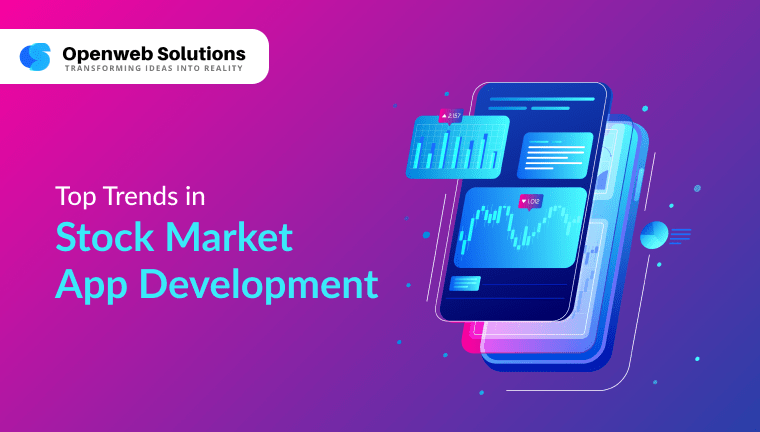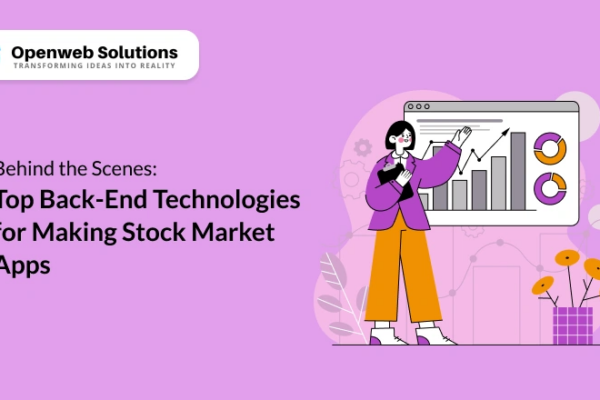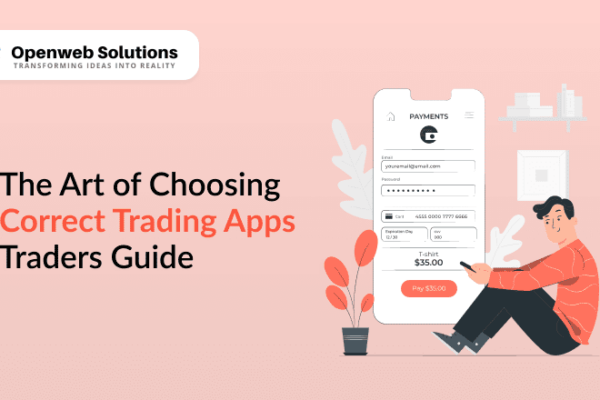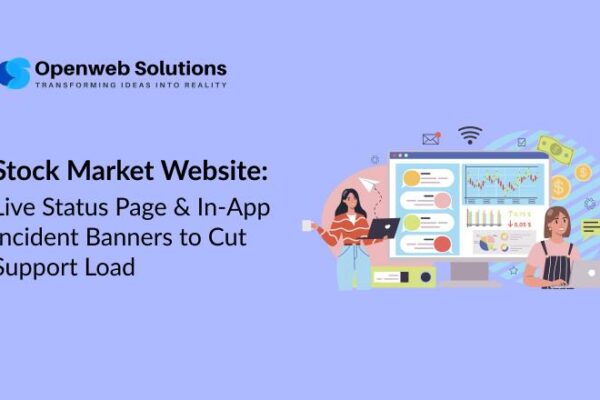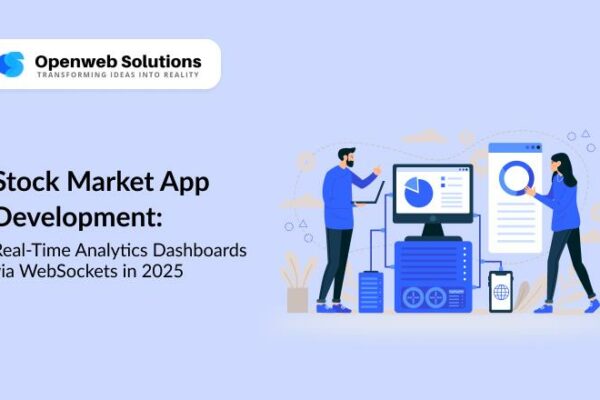The stock market landscape is constantly evolving, driven by technological advancements and changing consumer preferences. As technology continues to redefine the way we interact with financial markets, the demand for intuitive and feature-rich stock market applications is on the rise. Whether you’re an investor, trader, or financial institution, Stock Market App Development is crucial for gaining a competitive edge and maximizing opportunities in this dynamic industry. Let’s read some important trends in it.
Trends in Stock Market App Development
1. Mobile-First Approach
With the proliferation of smartphones and tablets, the stock market is increasingly becoming accessible to a broader audience. As such, developers are prioritizing the mobile-first approach in app development to cater to the growing number of users who prefer to trade on the go. Stock Market App Development is focusing on creating responsive and user-friendly interfaces optimized for various mobile devices, ensuring seamless access to real-time market data, trading functionalities, and portfolio management tools.
2. AI and Machine Learning Integration
Artificial Intelligence (AI) and Machine Learning (ML) are revolutionizing the way stock market apps analyze data, predict market trends, and personalize user experiences. By leveraging AI-powered algorithms, these apps can provide tailored investment recommendations, risk assessments, and predictive analytics to help users make informed decisions. From algorithmic trading to sentiment analysis, AI and ML technologies are enhancing the efficiency and accuracy of stock market app functionalities, ultimately empowering investors with actionable insights.
3. Blockchain and Cryptocurrency Integration
The emergence of blockchain technology and cryptocurrencies has disrupted traditional financial markets, presenting new opportunities and challenges for stock market app development or Stock Market Website Development. Integrating blockchain technology into stock market apps can enhance security, transparency, and efficiency in trade settlement processes, while also enabling the inclusion of digital assets such as cryptocurrencies and tokenized securities. Moreover, blockchain-based smart contracts can automate and streamline various aspects of stock market transactions, reducing the need for intermediaries and lowering transaction costs.
4. Robust Security Measures
As the volume of online trading continues to soar, ensuring the security and integrity of stock market apps is paramount. Developers are implementing robust security measures such as multi-factor authentication, end-to-end encryption, biometric authentication, and advanced fraud detection algorithms to safeguard users’ sensitive financial information and prevent unauthorized access or cyberattacks. By prioritizing security in stock market app development, developers can instill trust and confidence among users, thereby fostering long-term relationships and loyalty.
5. Personalization and Customization
In an increasingly competitive market, stock market apps are focusing on personalization and customization to cater to the unique needs and preferences of individual users. By leveraging user data, behavioural analytics, and machine learning algorithms, developers can create personalized investment portfolios, news feeds, and alerts tailored to each user’s risk tolerance, investment goals, and trading patterns. Customizable dashboards and intuitive UI/UX design further enhance the user experience, enabling users to efficiently navigate and access relevant information.
6. Integration of Social Features
Social trading platforms are gaining traction among retail investors, allowing users to connect, share insights, and collaborate with fellow traders in real time. Stock market apps are integrating social features such as chat forums, community discussions, and social media integration to facilitate peer-to-peer interaction and knowledge sharing. By harnessing the collective wisdom of the crowd, users can gain valuable insights, discover new trading opportunities, and stay informed about market trends, ultimately enhancing their overall trading experience.
Finishing off
The Stock Market App Development landscape is undergoing rapid transformation, driven by technological innovation and evolving user preferences. By embracing trends such as the mobile-first approach, AI and machine learning integration, blockchain and cryptocurrency adoption, robust security measures, personalization, and social features, developers can create cutting-edge stock market applications that empower industry participants with advanced tools and insights to navigate the complex world of financial markets effectively. As the demand for intuitive and feature-rich stock market apps continues to grow, staying ahead of the curve and incorporating these trends into app development strategies will be essential for achieving success in the competitive landscape of the stock market industry.
To deliver excellence an outstanding stock market app is vital. For that, you must approach an expert Stock Market Software Development company. With their expertise in stock market app development, they will endow you with software with which you can unlock your success.
FAQs on Stock Market App Development:
FAQ 1: How do I ensure the security of my financial information when using a stock market app?
A: Stock market apps prioritize security through measures like multi-factor authentication, encryption, and advanced fraud detection algorithms. These features safeguard your sensitive financial data, preventing unauthorized access or cyberattacks.
FAQ 2: Can stock market apps help me personalize my investment strategy?
A: Yes, stock market apps leverage user data and machine learning to offer personalized investment recommendations, tailored portfolios, and alerts based on your risk tolerance, goals, and trading patterns, enhancing your trading experience.
FAQ 3: What advantages does blockchain integration offer in stock market apps?
A: Integrating blockchain technology enhances security, transparency, and efficiency in trade settlement processes. Additionally, it enables the inclusion of digital assets like cryptocurrencies and tokenized securities, while smart contracts automate transactional aspects, reducing costs and intermediaries.
FAQ 4: How are AI and machine learning utilized in stock market apps?
A: AI and ML algorithms analyze data, predict market trends, and provide personalized insights, empowering users to make informed decisions. From algorithmic trading to sentiment analysis, these technologies enhance the accuracy and efficiency of stock market functionalities.
FAQ 5: Are there social features available in stock market apps for collaboration and knowledge sharing?
A: Yes, stock market apps integrate social features such as chat forums, community discussions, and social media platforms. These facilitate peer-to-peer interaction, allowing users to share insights, discover trading opportunities, and stay informed about market trends in real time.
Partha Ghosh is the Digital Marketing Strategist and Team Lead at PiTangent Analytics and Technology Solutions. He partners with product and sales to grow organic demand and brand trust. A 3X Salesforce certified Marketing Cloud Administrator and Pardot Specialist, Partha is an automation expert who turns strategy into simple repeatable programs. His focus areas include thought leadership, team management, branding, project management, and data-driven marketing. For strategic discussions on go-to-market, automation at scale, and organic growth, connect with Partha on LinkedIn.


